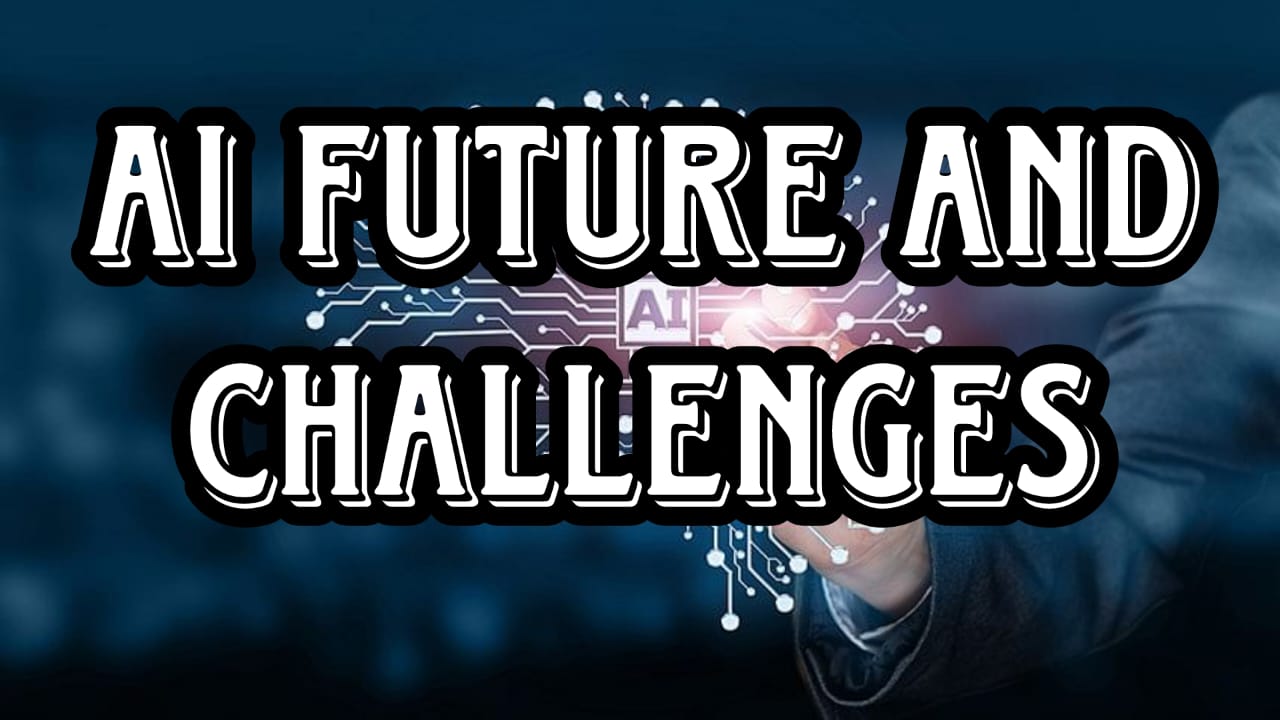
Artificial Intelligence (AI) Future and Challenges

What is Artificial Intelligence
There are many approaches to AI, including rule-based systems, machine learning, deep learning, natural language processing, and robotics. These methods can be used for various applications, such as image and speech recognition, predictive analytics, autonomous vehicles, and game-playing.
Overall, AI aims to create intelligent machines that can perform tasks autonomously and improve their performance over time through learning from their experiences. As such, AI has the potential to revolutionize many aspects of modern life, including healthcare, finance, manufacturing, and transportation, among others.
Pros and Cons of Artificial Intelligence
Pros:
Efficiency: AI can perform tasks faster and more accurately than humans, reducing errors and increasing productivity.
Cost-effective: AI can save money by reducing the need for human labour and optimizing processes.
Accessibility: AI can provide access to services and information to people who might not otherwise have access, such as those in remote areas or with disabilities.
Personalization: AI can customize services and products based on user preferences and behaviour, leading to better customer satisfaction.
Predictive capabilities: AI can analyze data and predict outcomes, allowing for better decision-making and risk management.
Cons:
Job displacement: AI can lead to the displacement of human workers, particularly in industries that rely heavily on repetitive tasks.
Bias and discrimination: AI systems can perpetuate and amplify biases and discrimination present in the data they are trained on.
Lack of empathy: AI lacks human emotions and intuition, making it difficult to address complex social and ethical issues.
Security risks: AI systems can be vulnerable to hacking, resulting in security breaches and other types of cybercrime.
Dependence: Society may become too dependent on AI systems, leading to potential vulnerabilities in the event of system failures or breakdowns.
Overall, the benefits of AI can be significant, but it is important to carefully consider and manage the potential risks and limitations associated with its use.
Future of Artificial Intelligence and Challenges
Advancements in Natural Language Processing (NLP): AI systems may be able to converse with humans more naturally and accurately, leading to better virtual assistants and language translation services. However, this could also raise concerns about privacy and the ethical use of voice data.
Autonomous Systems: Autonomous vehicles and drones could become more prevalent, leading to improved safety and efficiency in transportation. However, concerns about safety and the impact on employment in the transportation industry may arise.
AI in Healthcare: AI systems could be used to improve diagnosis, treatment, and drug discovery in healthcare. However, there may be ethical concerns around the use of personal health data and the role of AI in decision-making.
General AI: Developments in general AI, which is capable of performing a wide range of tasks, could have significant impacts on various industries, including finance, customer service, and manufacturing. However, there are still significant technical challenges to overcome before general AI becomes a reality.
Ethical and Societal Challenges: As AI becomes more prevalent, there will be growing concerns around data privacy, security, and the potential impacts on employment and inequality.
Overall, the development and widespread adoption of AI will require careful management and oversight to ensure that it benefits society while also minimizing its risks and challenges. This will involve collaboration between industry, government, and society at large to develop ethical guidelines and regulations that promote the responsible use of AI.
Admin at The Pakistan Gazette

